How creating health equity is good for people and for business
Never before has there been a greater opportunity and need for the healthcare industry to improve health equity. According to the National Academy of Medicine and the Center for American Progress, racial and ethnic minorities and LGBTQ+ communities historically receive a lower standard of care—and fewer medical services overall—than white and straight Americans. The covid crisis brought those disparities to the fore.
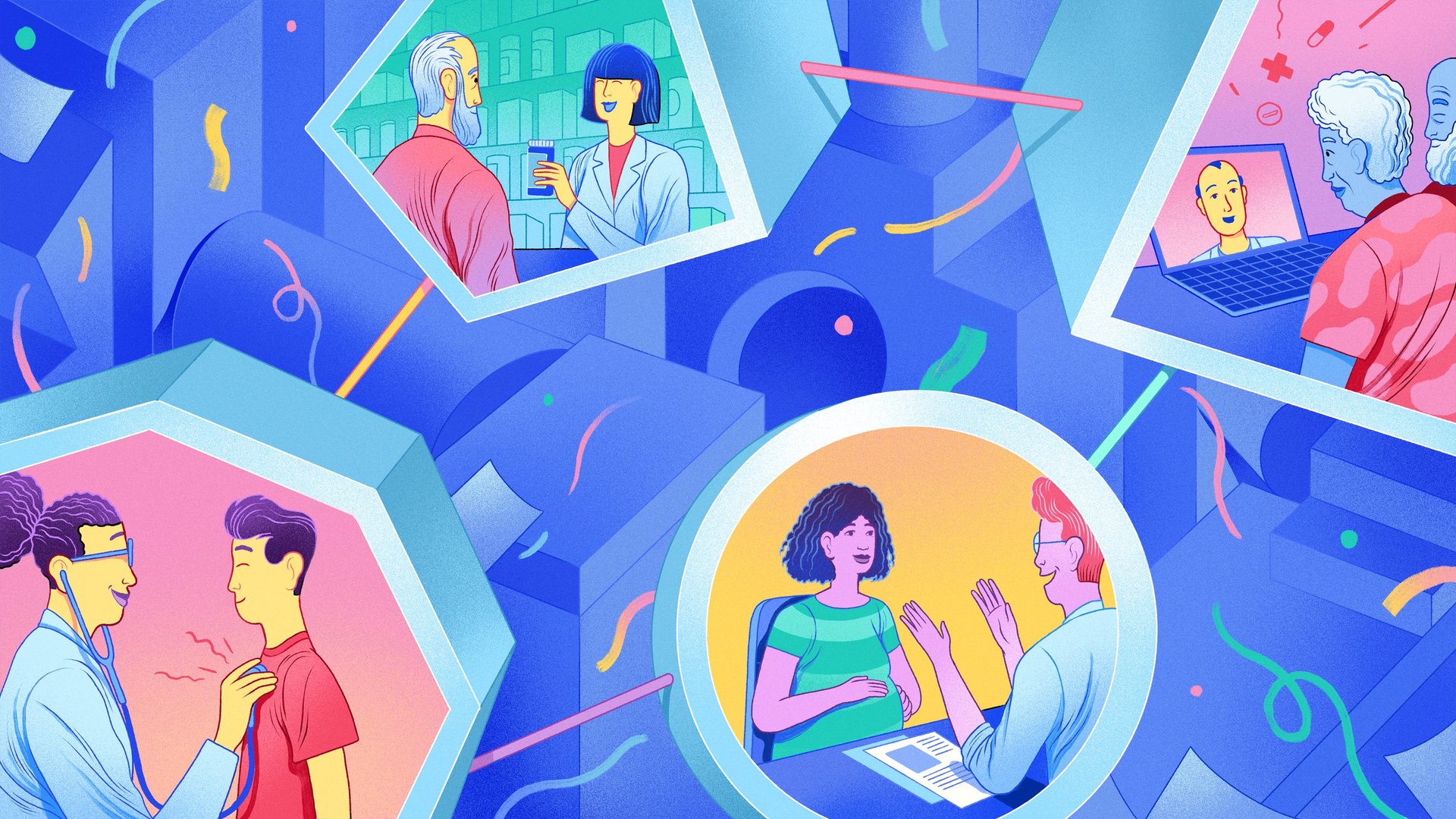

Never before has there been a greater opportunity and need for the healthcare industry to improve health equity. According to the National Academy of Medicine and the Center for American Progress, racial and ethnic minorities and LGBTQ+ communities historically receive a lower standard of care—and fewer medical services overall—than white and straight Americans. The covid crisis brought those disparities to the fore.
In response, corporate leaders are under increased pressure to care for both their workers’ physical and mental well-being, while providers are being held accountable to advance healthcare justice. “The conversations I’m having with business leaders make me optimistic. I’m seeing them prioritize the well-being of their employees and their communities,” says Jimmy Etheredge, CEO of Accenture North America.
“At the same time, more healthcare organizations are responding to patients’ evolving expectations. This is the right direction. Purpose matters to people. Showing more compassion and making healthcare more equitable is turning out to be good for businesses and society.”
But humanizing healthcare is also good for business—on both the worker and customer sides.
New Accenture research found that taking care of your workers unlocks significant personal potential, which in turn paves the way for potential bottom-line impact. The 2020 study discovered that when companies prioritize workforce wellbeing and equality, 94% of workers put significantly more effort into their work. In turn, when companies couple prioritizing workforce wellbeing with other improved experiences for their workers, they stand to gain upwards of 5% growth in revenue.
For healthcare providers, another Accenture report revealed that improving the patient experience could potentially increase their revenues by 5% to 10% within 12 months. That’s why, according to Accenture and HIMSS Insights, nine out of 10 healthcare executives say that health equity initiatives are a top business priority. But that upside isn’t limited to the traditional medical sphere. Accenture has worked with clients across many industries—from retail to telecommunications—to facilitate healthcare access, improve experiences, and create better outcomes for diverse populations. Together these corporate initiatives create opportunities to serve new markets, expand products and services, and bolster brand trust.
The ways to leverage health equity toward business growth are many and ranging. Featuring advice from five health and HR experts, discover four ways companies like yours can combine human ingenuity with technology to close the healthcare gap and build more sustainable businesses.
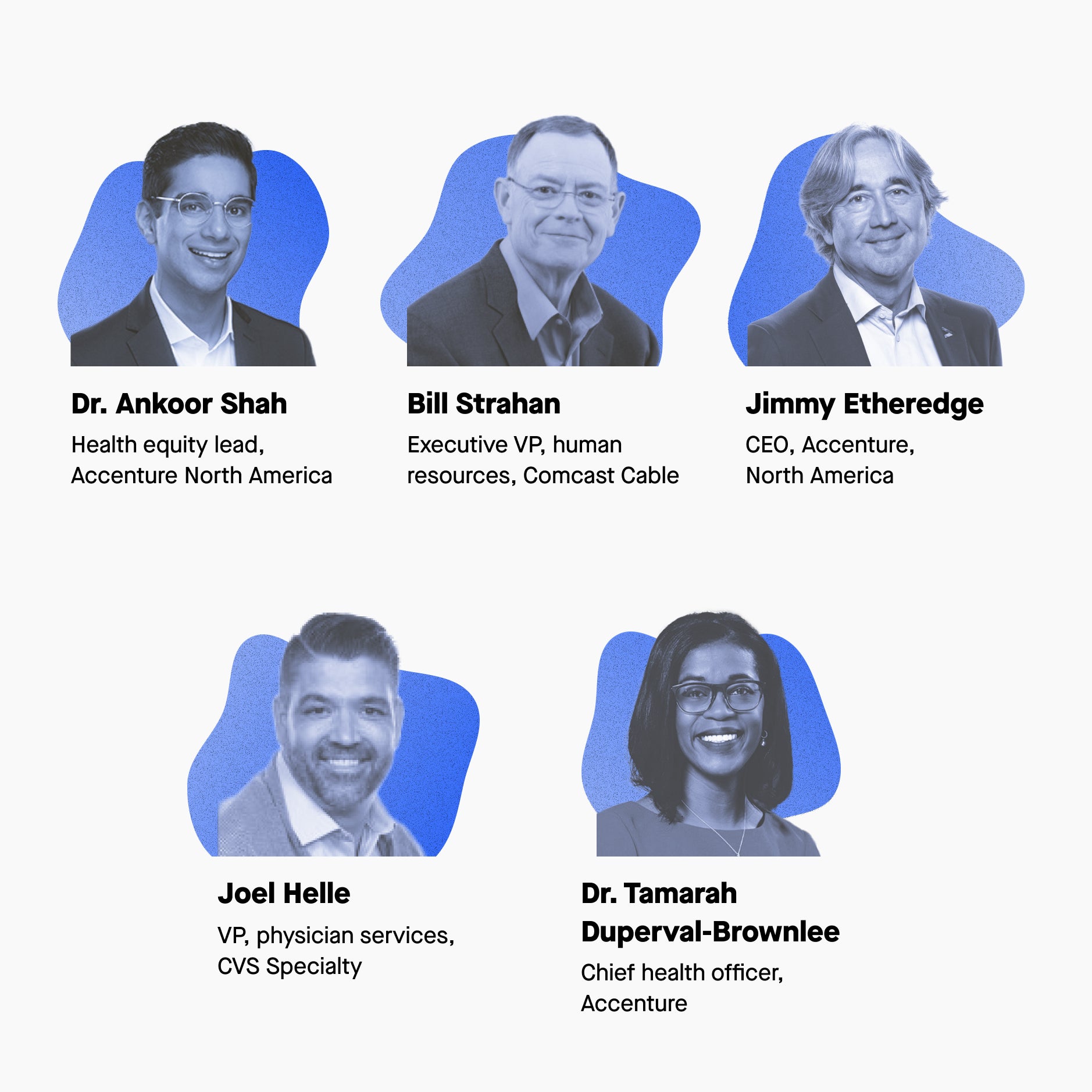
Use data to improve outcomes
Over recent years, we’ve learned that the age-adjusted covid death rates for Black and Latinx Americans are more than twice as high as those of their white counterparts, and in some cases, as much as five to 10 times higher. And before the pandemic, the situation was just as bleak: Compared to white mothers, Black mothers were twice as likely to receive late or no prenatal care, and they suffered a 2.3x rate of infant mortality.
The structural reasons for these health inequities are many; social determinants of health (SDOH), discrimination and marginalization, and public policies can all stand in the way of consistent, quality care. But government and private organizations can advance health equity by addressing factors within the patient journey.
The state of Ohio, for example, has one of the highest infant mortality rates in the United States. In 2017, seven out of 1,000 babies died before the age of one year, and compared to white babies, Black babies in Ohio were more than three times as likely to die before their first birthday.
In partnership with the state of Ohio, Accenture’s data scientists analyzed more than 200 disparate datasets and employed machine learning techniques to identify 250,000 mothers who have a higher risk of their infant dying within the first year of life. Accenture then enabled the state of Ohio to implement human-centered, preventative, and targeted interventions, such as home visiting programs.
Leverage existing assets in underserved areas
Often a person’s zip code has more bearing on their health outcomes than their genetic code. That’s because healthcare is not distributed equally, neither geographically nor socioeconomically. This inequity leaves room for companies to step in with digital and in-person services for underserved populations. “We need to make sure the zip code you live in does not determine the quality of care you receive,” says health equity lead, Accenture North America Ankoor Shah. “That means focusing on access to high-quality healthcare for everyone in the United States, especially the most vulnerable,” continues Shah. “We can leverage the advances in technology to help get us there.”
For example, 150 million Americans visit Walmart each week, across about 5,100 stores nationally. 4,000 of those stores are in areas that are “medically underserved,” a term from the federal Health Resources & Services Administration (HRSA) that means populations without enough access to healthcare services. Walmart is working to aggregate services into one site that’s available seven days a week, offering telehealth and in-house pharmacy, to effectively blur the lines between patient and shopper.
Through a partnership with Transcarent, they’re also offering self-insured employers access to affordable care.
Other times, it’s not physical access, but access to information that inhibits care. Because of interactions of the covid vaccine with anti-retroviral therapy and hormone therapy drugs, and the effects of the pandemic on the mental health and homelessness in the LGBTQ+ population, LGBTQ+ people overall are more hesitant to get vaccinated against covid. CVS Health, which has built a significant covid vaccination program since the beginning of the pandemic, partnered with Accenture on a webinar addressing vaccine hesitancy within the LGBTQ+ community.
Educational programs like this have helped CVS Health increase the pool of people they serve through their vaccination program. Joel Helle, VP of Physician Services at CVS Specialty, encourages health care workers to actively educate members of their own diverse communities. “We know from our health equity work that when black people talk to black people and brown people talk to brown people and gay people talk to gay people, they’re much more apt to learn and to believe the information,” said Helle early in the covid vaccine launch. And by expanding vaccination safety education into all communities, they’re in turn increasing the number of new faces interacting with the brand every day.
Covid vaccine equity, which is when everyone has fair and just access to covid vaccination, is important. There are many social, geographic, political, economic, and environmental factors that create challenges to vaccination access and acceptance, and that often affect racial and ethnic minority groups.
To remove barriers to vaccine access, and vaccinate millions of Californians against covid, the State needed to quickly change how they worked. Accenture helped meet this challenge, launching a branded solution in 10 days that addressed the complex, evolving needs of public and clinician audiences, with an orchestrated, multi-channel experience. Accenture’s ability to pivot quickly and communicate with empathy worked. The efforts facilitated nearly 12.5MM vaccine appointments—including 36% from the Latino community—and helped California achieve the goal of 70% of adults partially vaccinated one month ahead of schedule.
Converge services to increase access
Accenture believes that technology is a lifeline to equitable healthcare. It can increase access, improve the overall experience, and drive better outcomes. When thinking about digital technology use, we must be intentional to address:
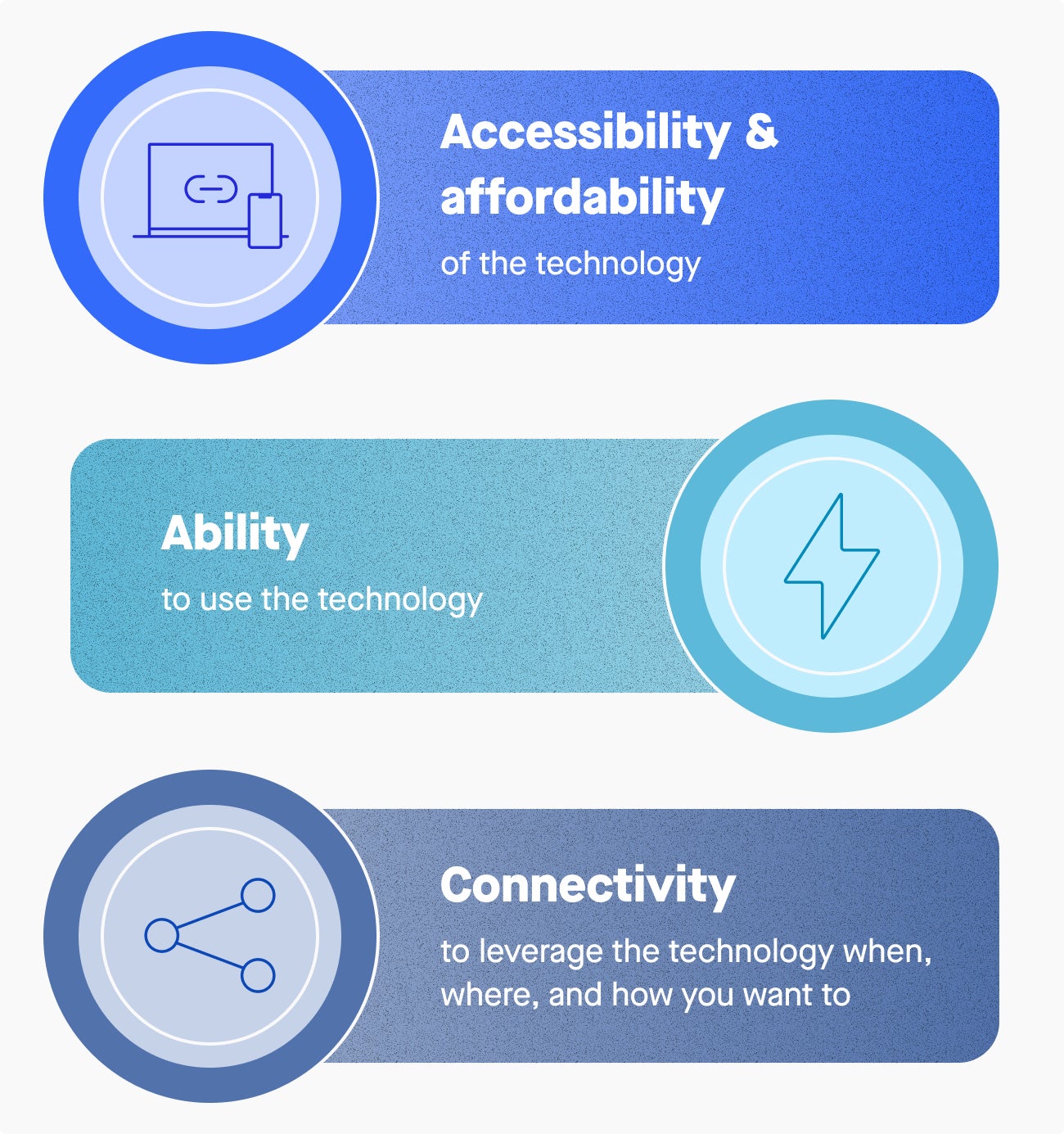
Comcast, the nation’s largest cable company, may not be a conventional healthcare provider, but their work is rapidly helping communities improve their level of care. Because of the pathway it provides to medical information, access to the internet is becoming a critical SDOH, so Comcast is working to get more communities online.
Their ProjectUp and Internet Essentials programs, designed to provide affordable internet for eligible households, have helped 10 million Americans log on to the web. In addition, Quil Health, a joint venture between Comcast NBCUniversal and Independence Health Group platform, offers personalized, in-home healthcare, bringing together patients, their families, and providers in order to share information.
These Comcast initiatives show how companies outside the traditional healthcare space can leverage partnerships to serve their customers’ wellness needs and enhance loyalty to a brand.
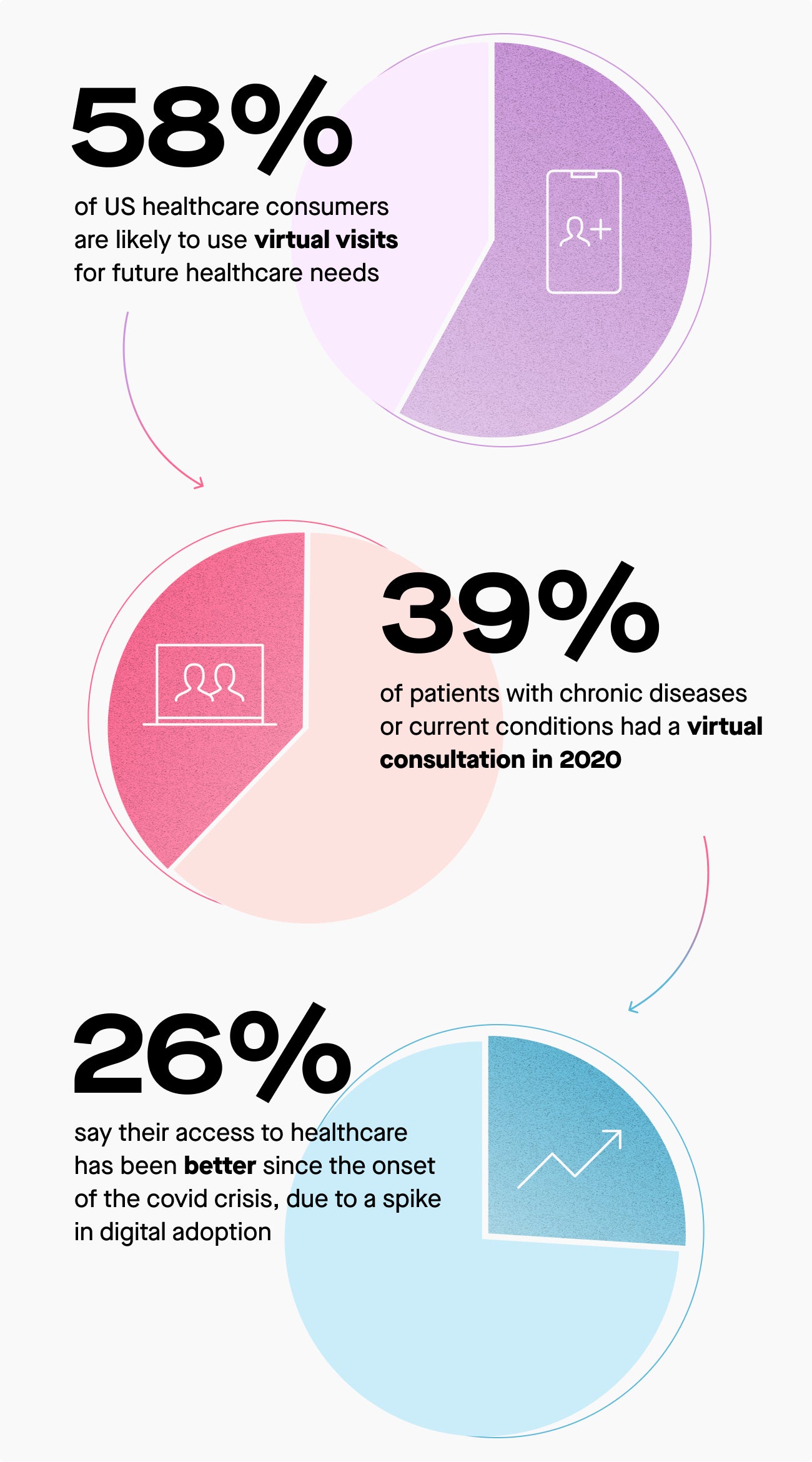
Sources: Elevating the Patient Experience to Fuel Growth 2020, Accenture Health and Life Sciences Experience Survey 2021
“The US healthcare system is one of the most complex things that any of us have to deal with,” says Bill Strahan, executive VP of human resources at Comcast Cable, on Accenture’s Change Conversations podcast. “The idea that ‘I’m going to learn that system and navigate it, just at the moment when I need it, when either I’m sick, maybe a child is sick, a loved one is sick’. It’s the worst time to try to learn something so vastly complex, so telehealth can not only bring the provider there, but it can bring … education.”
Make mental health matter
The covid crisis also underscored a sweeping need for mental healthcare, but people do not pursue that care if they’re unaware of the resources available or if there is stigma around them. To address the population’s behavioral health needs, companies need a menu of virtual and in-person options for their teams, and a plan of attack to raise awareness for the tools available to them.
Health equity is a critical facet of workplace inclusion, so leaders must work to build corporate cultures in which workers feel comfortable asking for help and managers are trained to have conversations with their workers about the solutions available to them.
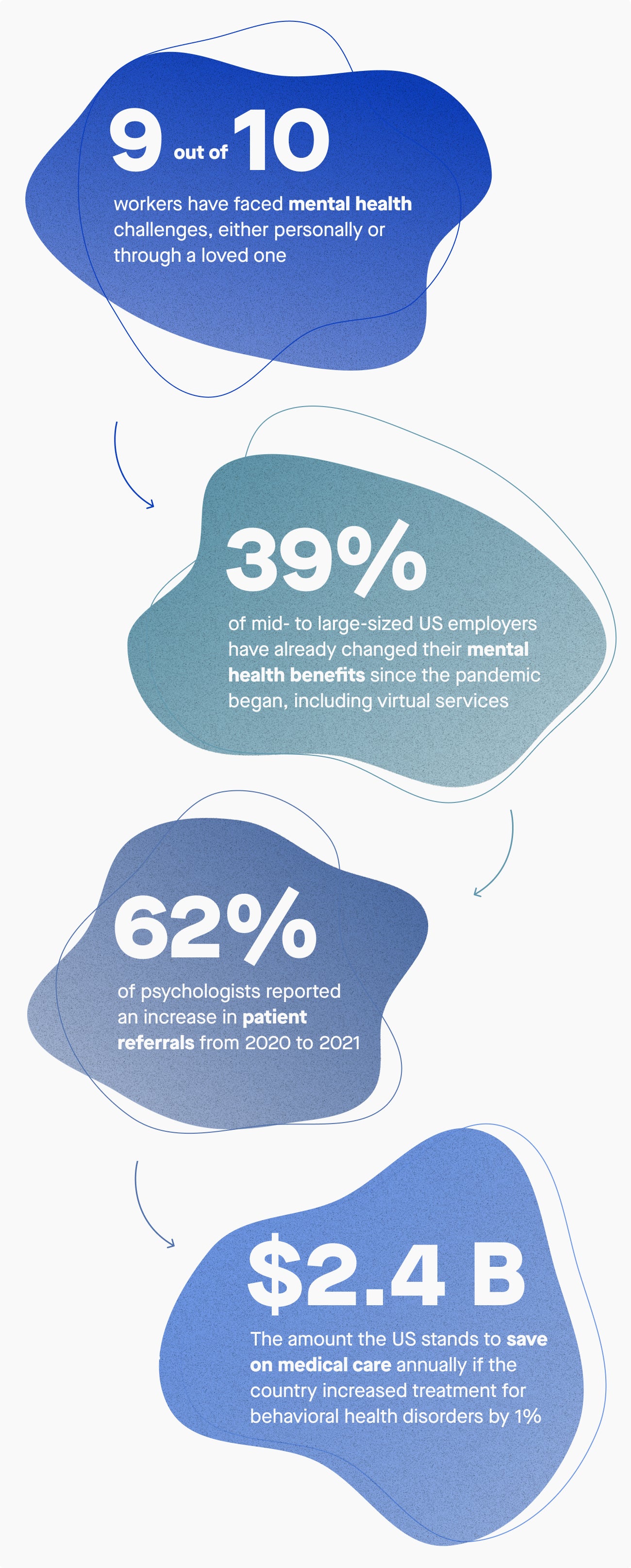
Sources: Accenture Health and Life Sciences Experience Survey 2021, KFF 2021 Employer Health Benefits Survey, American Psychological Association survey, Accenture Mental Health Access Report 2020
“We recognize that supporting mental health and disability inclusion accelerates a culture of equality for everyone,” says Accenture’s chief health officer Dr. Tamarah Duperval-Brownlee. Accenture focuses on breaking stigma around mental health and improving its workers’ access to care.
People are every companies’ most valuable resource, and offering programs to keep them mentally and emotionally strong can enhance retention, job satisfaction, and output.
In the United States, there is tremendous opportunity to improve the nation’s health and eliminate health disparities, which will nurture sustainable businesses. Because when companies uplift workers, improving their access to healthcare and allowing those people to be healthy and active, they also improve the outcomes of their families and wider communities.
Rethinking the what, when, where, who, and how of care delivery to focus on previously underserved communities will also help organizations reach more people, more deeply, building lasting relationships that will lead to a healthier world for all.